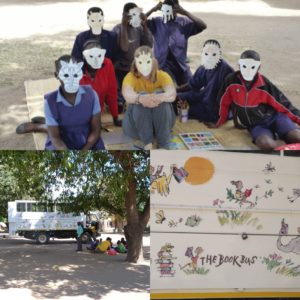By Diane Holt & David Littlewood
As the world struggles with the ongoing COVID-19 pandemic and looks towards economic and social recovery, the role that hybrid businesses might play has never been more pertinent. Hybrid businesses are those that mix profit with purpose, combining non-profit and for-profit business approaches . They are sometimes described as social enterprises but might also carry designations such as Fairtrade or B Corporations (a few examples include Divine Chocolate, The Big Issue, VisionSpring, and the B Corp Patagonia). We need to explore how the range of such emerging ‘hybrid/social enterprises’ reflects the diversity of their operating environments and where their beneficiaries are based. Understanding this is crucial as it enables responding with effective recovery strategies and building ongoing resilience, considering that countries differ in the problems they face and their respective institutional environments.

We would argue that the framing presented in our article in Business & Society (Littlewood and Holt, 2018), which explores how social entrepreneurship in South Africa reflects historical country-level institutional differences to elsewhere in the world is an example of how such differences play out in a lived reality. We would argue that for social enterprises to play a role in addressing current-day global, national and local challenges – social, environmental, and economic- they will need to reflect the diversity that exists in institutional environments. We would also now extend this further to suggest that there needs to be more recognition of how individual groups can be disproportionally marginalised, excluded, and impacted by the aforementioned challenges, and that social enterprises need to target and contextualise their activities more effectively.
This foundational article in Business & Society, and the subsequent work that has cited this study, shows that not only do levels of development and economic metrics like GDP vary across countries, but legal systems also differ, as do cultural norms, industrial histories, and the types of economic activities that dominate. This variability thus leads to a range of different social, environmental or economic issues in each country. By adding a further layer of complexity, we can now see how differences across various groups of individuals can result in them also experiencing these crisis issues differently. For example, overlapping modes of social injustices can impact some groups disproportionality (e.g. Steinfield and Holt, 2020).
Whilst the complex social, economic, and environmental issues facing society may be encapsulated in the global Sustainable Development Goals and associated targets, the on-the-ground reality and resultant activities to address these will invariably need to differ across different countries and groups. For instance, a social enterprise promoting youth entrepreneurship will have a very different lived reality if based in Denmark versus Kenya. Not only this, if a young person in Kenya comes from a middle income background with access to family finance and having finished an undergraduate degree, they will have a very different set of enablers and barriers compared to another youth who may not have finished high school and lives on a subsistence income earned through casual work in the informal economy (Holt, 2020). Adding a gender and/or ethnicity lens complicates this even further.
Our article focuses on South Africa with its legacy of apartheid that has had profound economic, cultural, social, and structural impacts. Their social economy is critically important in responding to this legacy. Our article was one of the first to explore such aspects in terms of social entrepreneurship and is used in required readings for social enterprise courses in both South Africa and elsewhere in the world. This work has played a critical role in helping us to think about how such variability can influence policy responses; for instance, in the project on developing the Social Economy in South Africa (ILO, 2021). Our paper also makes the argument that the social enterprise landscape in Africa will differ from elsewhere. Furthermore, not only does this landscape differ between developed and developing countries, but may also differ across sub-Saharan Africa, and even within African countries at sub-national institutional levels.
In addition to understanding the influence of institutional environments on social entrepreneurship, we thus need to consider the various beneficiary groups and their individual differences. We therefore need to further consider:
- How, within South Africa and elsewhere in the world, social enterprises can help respond to issues such as COVID-19;
- How we can ensure that we consider key differences between countries and how this can impact social enterprises and social entrepreneurship more broadly;
- How the lived realities of marginalized/privileged groups in South Africa compares to those in other countries and build solutions that reflect their individual lived realities.
References
Holt, D.2020. Exploring Youth Entrepreneurship. United Nations Department for Economic and Social Affairs (UNDEA). United Nations, New York
ILO 2021. https://www.ilo.org/global/topics/cooperatives/projects/WCMS_501549/lang–en/index.htm
Littlewood, D. & Holt, D., 2018. Social entrepreneurship in South Africa: Exploring the influence of environment. Business & Society, 57(3), 525-561.
Steinfield, L. & Holt, D., 2020. Structures, Systems and Differences that Matter: Casting an Ecological-Intersectionality Perspective on Female Subsistence Farmers’ Experiences of the Climate Crisis. Journal of Macromarketing, 40(4), 563-582.
